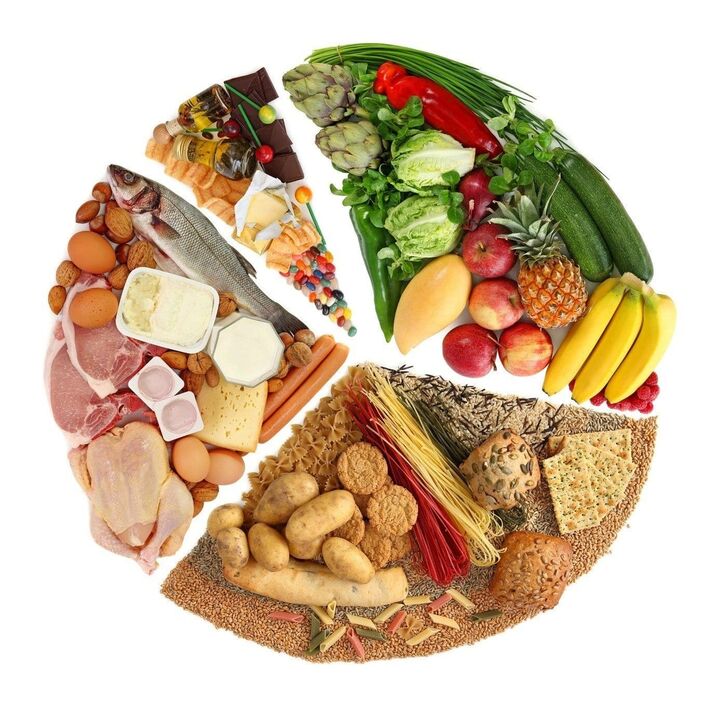Whatever happens on planet Earth, including wars and climatic collapses, the topic of struggle with extra pounds remains relevant.
Bad news: despite the fact that world doctors are alarming due to an epidemic of obesity, a magic tablet that quickly and safely helped people to lose weight is still not invented.
Good news: there are methods to get rid of excess weight, in which science is really sure.
Let's try to figure out what kind of methods these are and how realistic their use in the life of an ordinary person is.
Forget about the body mass index
The notorious body mass index (BMI) can be higher than the norm even in a person who does not suffer from obesity.
This is because the muscles are harder than adipose tissue.At the same time, adipose tissue has a larger volume.That's why you can lose weight “in centimeters”, but see disappointing numbers on the scales.
The bioimedance analysis (BIA) is much more informative, which diagnoses the composition of the human body.This is done using an electric signal, because different types of tissues in our body have a different impedance, that is, resistance.
Special scales that can honestly say how many percent of the fat you have, you can have at home.However, be sure to consult a doctor if you have a pacemaker or other electronic devices.
The diet must be balanced

30% proteins (lean meat, fish, eggs, dairy products, tofu, legumes) and fats (olive oil, nuts, avocados) and 40% carbohydrates (rice, potatoes, bread, cereals) - it is precisely such a ratio that should be held in each meal.
This is a doctor’s advice with a research institute.According to his observations, it is such a diet that allows people to lose weight and hold the result for at least six months.
But he does not recommend popular low -carb diets.Studies show that these diets can harm digestion.
Eat from small plates of contrasting color
Scientists calculated that if you replace large plates with smaller ones, a person can reduce the daily calorie intake by an average of 527.
The desire to eat everything that is on the plate, "so as not to throw away", it is very difficult to resist, so we often overeat.
At the same time, scientists advise not to take too small plates, so as not to run after the addition.
It is also desirable that the color of the plate contrast with the dish.For example, rice or paste is better to eat from dark plates.
And the studies are also said, slowly, under quiet jazz and in soft light, a person is inclined to eat less than under classic rock and under bright fluorescent lamps.
Drink water

Somewhere half an hour before eating, it is worth drinking water.There is no direct need to use a large amount of water.You need to drink when you want this, but you can’t ignore thirst either.Water does not have any special properties.However, there is a study that showed that the consumption of 0.5 liters of water before each meal helps to reduce weight by 44% more efficiently.
Firstly, because the body often confuses hunger with thirst.
Secondly, studies have shown that, drinking more water, a person increases energy at rest, that is, he burns more calories not even in conditions of physical activity.
If this water is also cold, additional calories are heated.
Chew slowly
Polls of middle -aged men and women conducted by researchers from a medical school showed: “Fast plugs” have a tendency to gain weight over the years.
It is worth noting that scientists relied on changes in the aforementioned BMI subjects from the age of 20, comparing it with how quickly these people had a habit of eating.However, the correlation turned out to be obvious - both in men and women.
Sleep well

Lack of sleep forces a person to want harmful food much more.This is the legacy of our distant ancestors.
The lack of sleep “wakes up” the primitive instinct in us: to eat something very fat and high-calorie as soon as possible, because then there may not be food at all.
“Our brain did not evolve as quickly as the choice of products that have become available,” she notes.
Markle = lose weight
Thermogenesis is when the body warms, burning calories, the professor explains.Moreover, the so -called brown or brown fat is activated.
During the experiment, 12 young people spent some time in a room with a temperature of 17.2 degrees.At the same time, they burned 108 calories more than volunteers who were in warm rooms.
Six weeks later, volunteers from the first group were invited to repeat the experiment.And it turned out that for the same period of time in the cold they already spent 289 calories.That is, the cold increased their potential for burning fat cells.
This does not mean that those who wish to lose weight need to live in the refrigerator.But not to be afraid of low temperatures - it will not hurt.
Fruits are possible and necessary
Disputes about fruit have passed for years.But the researchers of public health finally put an end to "and."For a quarter of a century, they observed 125 thousand people 27-65 years old and came to the conclusion: the more people consume fruits and berries, the harder they are.
Products such as grapes and berries (especially red and purple) contain a huge amount of healthy vitamins, minerals and antioxidants, in particular flavonoids and resveratrol.
She advises fruits and berries to replace high -calorie goodies, but not get involved in grapes - because she is too sweet.
More sport does not mean better

After a certain amount of physical exertion, a person reaches the “plateau” phase, where he almost stops burning calories.
Simply put, take the exercises for half an hour and get all the benefits, and two more percent of the benefits are not worth training for the sake of them for another two hours.
5−15-minute mode of moderate motion is just as good, if not better than spending an hour in the gym.
If you climb the steps or even just stand, and do not sit with the phone in your hands - this will also be a useful moderate movement.
How to hold the result?
5000 volunteers who were able to lose weight by 14–136 kilograms and save this result for a year or longer.
- 78% of them had breakfast daily
- 75% weighed at least once a week
- 62% spent less than 10 hours a week in front of the TV
- 90% mildly trained one hour a day
Once again, we note that strict monodites, implying a sharp reduction in calorie power and the use of minimum servings of products harm the work of metabolism.Although such diets can be effective for weight loss in the short term, the weight discarded is often returned.In order to get rid of excess weight forever, it is necessary to adhere to proper nutrition constantly.













































































